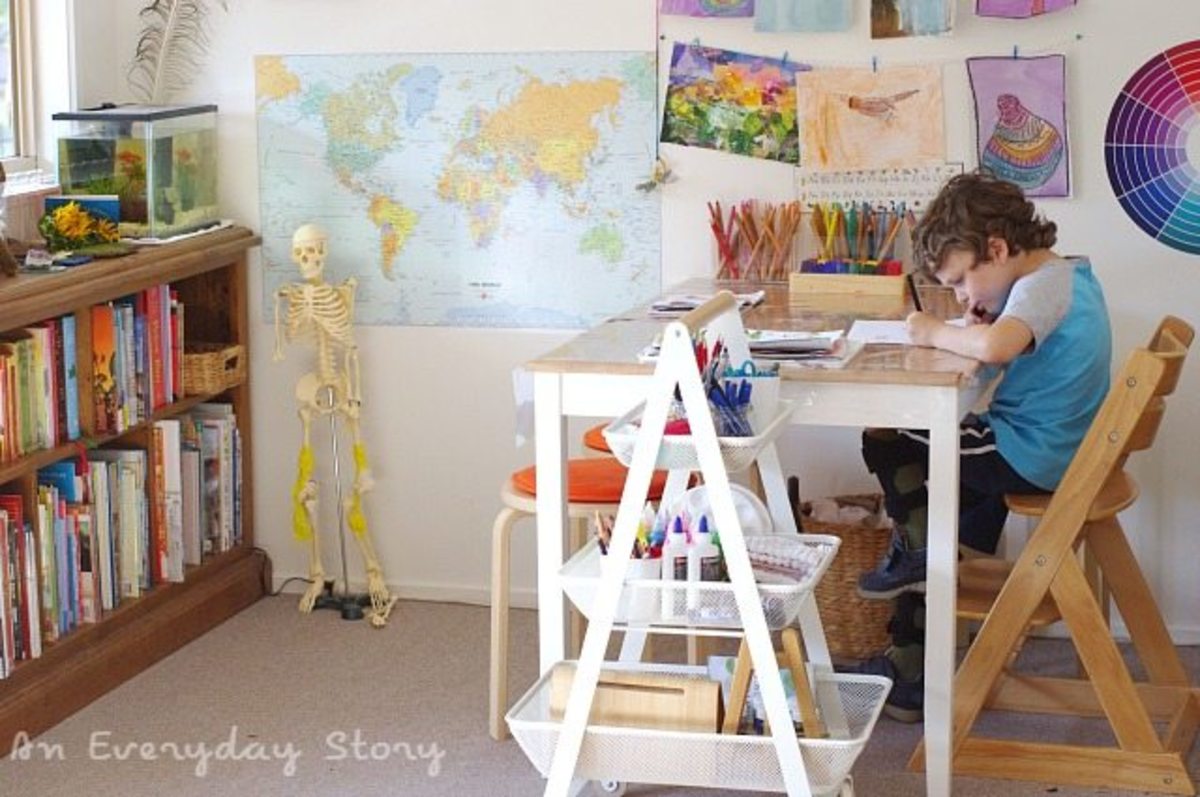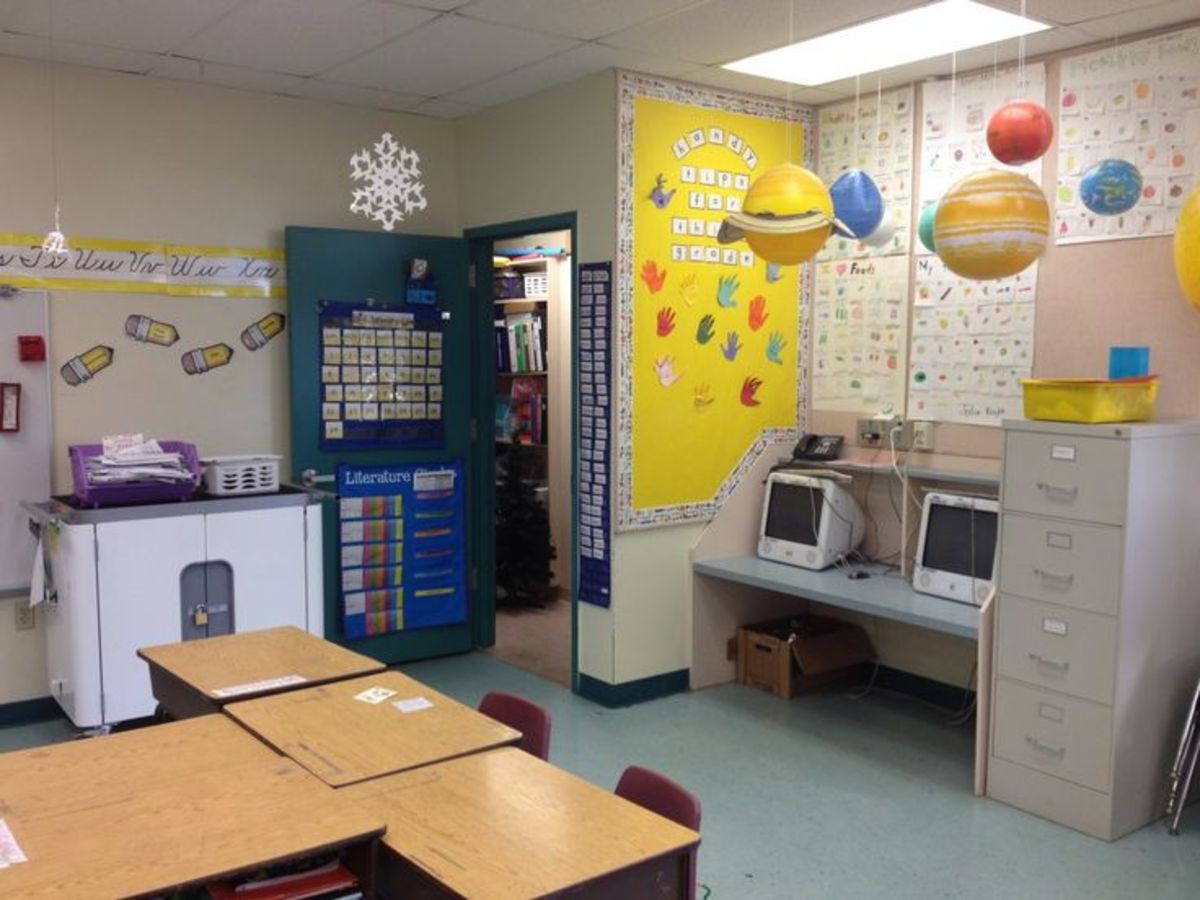Homeschooling: Benefits and Rewards

It's generally safe to say that, as parents, we all want our kids to lead a healthy, happy life and get a good education. Sadly, with severely declining educational standards in the US, this second one is becoming increasingly difficult to come by, leading parents to seek out alternatives. Homeschooling may be one of those viable alternatives.
Homeschooling as an Alternative to Public School
Over the years, the public school system has declined to the point that it is largely ineffective in educating children. I'll be the first to say that No Child Left Behind, Common Core and other well-intended initiatives have largely fallen flat on their faces with little overall academic improvement. The United States has steadily fallen further and further behind the rest of the world in education, which is really tragic considering the resources that could be thrown into improving the system.
Not sure if homeschooling is the answer? Education innovations can start anywhere

There are some good private schools out there, but they are expensive -- and many don't have scholarship options -- exclusive, and often fraught with the same issues as public schools.
Homeschooling can be done anywhere. It remains open to nearly every income class, and has some distinct advantages over either of these other school types. No single solution will work for all kids, but homeschooling is a viable alternative for many, especially those for whom the current method of schooling isn't working.
Some people think that homeschooling is only for the rich, or only those who have leisure time to "sit around and teach their kids." I'll add the disclaimer here that I was homeschooled; it was with a household income well below the Federal poverty level, and in the days before the internet. Today, it's so much more accessible to virtually anyone who can commit the time.
The One-to-One Teaching Advantage
Children learn better when there's a low teacher-to-student ratio, and many thrive best in a one-to-one teaching environment, such as from a tutor or homeschool parent. A tutor gives the student the opportunity to address any areas of confusion immediately, and then move on once a concept is well understood. Focus immediately goes to the next thing, offering minimal opportunity for boredom.
How to be a more effective teacher in any setting

Small schools have this advantage to a point. Smaller classrooms allow for more individualized attention, but unfortunately most students in the US do not go to a school with a 1:4 teacher to student ratio.
In most classroom settings, the entire class only learns as fast as the slowest learner in the bunch, which can lead to excessive boredom and a lot of wasted time. A good teacher can't move on to the next subject until every student understands, so there's always going to be at least one that's left on the far end of the spectrum.
Homeschooling parents take the place of an individual tutor, making him/herself available to answer all of the student's questions and help wherever there are difficulties. Every hour of school constitutes an hour of true learning or much-needed clarification, sans the daydreaming while waiting for slower students or the frustration of being the one that slows down the whole class.
Get Off the Shallow End of Education
Studies show that one of the major problems with the public school system is the "mile wide and inch deep" approach. Schools are required to teach all the "important stuff," which in a time crunch can turn into a mass of random facts being fired at the student. The result: students know how to memorize those facts long enough to pass a test, but not actually learn them. The uptick in standardized tests seem to have only exacerbated the problem.
The basics often have to be re-hashed numerous times at various grade levels because they weren't committed to heart in the early grades, wasting yet more time and still only having the result of students who can "puke on the paper" -- that is, regurgitate information in order to pass a test. A homeschooler is given the opportunity to focus on fundamentals and learn it forward and backward, committing it to memory and saving time and stress in the later grades when that foundation has to be built on.
Enjoyment and Creativity Often Missing in Schools
The most important part of learning is enjoying it. A child who does not want to learn or does not like what they are learning will never be a good student, and consequently will never be well-educated.
The saddest legacy of the public school is that a vast majority of graduates do not enjoy learning. They've had information crammed down their throats their entire school career and have learned to associate learning with negative experiences. As with anything, there are some exceptions -- but not many. The declining national literacy level and enrollment in secondary education lends mute testimony to where these practices are leading the country as a whole.
The traditional model of schooling tends to foist the same education on everyone, which just plain isn't effective for some. They end up hating it. At the same time, free thinking and creativity is inadvertently discouraged in schools because, quite simply, a classroom full of free thinkers who are all doing their own thing gets to be too much for teachers in traditional schools.
Sir Ken Robinson says a word about schools and creativity (long, but WELL worth the watch)
One approach to homeschooling is "free learning," or what some call "unschooling." This structure gives the student freedom to learn what he or she wants, and the parent or other facilitator is there to provide resources and guidance as needed. While complete free learning may not be for everyone, homeschooling allows for a mixture of structured classes of "important stuff" as well as time for the student to learn about the things they are interested in.

Whatever a child's interests are, their classes in the public school remain the same. A homeschooling parent, on the other hand, has the option to incorporate their child's special interests into their normal schooling to make it more interesting, apply what they're learning to real life and ensure continued enjoyment of learning.
Learning Types Vary Widely
There are several primary ways of learning, and different mixtures and subsets of all of them. Each child learns best with one or more of these ways, so it varies according to the individual. Sadly, most public school classes only incorporate one or two of these ways, in rare cases three. They work great for the few kids who learn best that way, but leave everyone else straggling behind. Homeschooling gives parents the freedom to utilize whatever means will help their child learn the easiest and best.

Public school curriculum must be structured so that it works well for large numbers of students and can easily be taught to teachers, creating an easily reproducible product so students can be ushered in and out of the door and receive a federal-approved, assembly-line education. Is it any wonder that creativity is also on a decline? Break out of that mold and tailor-make a curriculum for a small number of children with the goal of turning out students with an effective, well-rounded education and it opens up all manner of possibilities for creativity in teaching.
Now for a quick animation on learning types
Do Homeschoolers Know What They're Doing?
Many people argue that no one without a teaching degree should teach. I disagree. While teaching classes do familiarize people with the mechanics of teaching according to the public school system, and gives the teacher the basic information on the subject they're going to teach, it's not the only way to be a great teacher. The real requirement is a desire to learn and to help others do the same.
One of the best teachers I had in high school was the one that admitted when he didn't know something, but put the effort into learning it so he could teach it to his students. Why should parents be capable of any less? Parents also have a vested interest in seeing their children actually LEARN instead of just pass tests, and so are bound to be much more effective teachers than the average underpaid, overworked public school teacher who has dozens or hundreds of students to worry about.
To Sum Up...
This is a lot of information here, so allow me to put it all in perspective. When I first started school I was extremely hyperactive and had extreme difficulty sitting still and listening, to the extent that I had to stand up and move around about every 15 minutes. Luckily, I was homeschooled. Every time I got too antsy to listen to my mom anymore, she'd send me outside to run around the house nine times, then back inside for another 15 minutes of school. Repeat. It was, no doubt, a frustrating system for her, but it worked -- I learned. My sister had a problem with math and to this day cannot grasp very simple functions, thought she is adept at advanced algebra, calculus and trigonometry.
Because of my hyperactivity and my sister's difficulty with basic math, there is a good chance we would have both been in "special" classes where we would have quickly become bored and disruptive. I don't know about her, but I never would have learned anything under those circumstances. Instead, we both retain a love of learning. My mom utilized games, 4-H projects, community sports, local college professors and group classes, producing a very effective overall mix.
We went into the public school in high school when life changes demanded it. I never took a standardized test that didn't score in the 99th percentile. My sister graduated Salutatorian of her class (her perfect 4.0 GPA brought down by a B in P.E. in sophomore year due to asthma) and a National Merit Scholar. Today, she's working on a second Bachelor's degree and I'm successfully self-employed. To tell all truth, we were both quite bored through high school and learned very little new between our last year of homeschooling and graduation.
Homeschooling is not for everyone. It requires a huge investment of time, and is certainly more expensive than public school. All books and educational support material must be purchased by the family instead of the government. For those who can do it, the benefits often far outweigh the cost. The internet, secondhand homeschool marketplaces and other such resources help decrease the out-of-pocket expenses, and there are a number of programs that may help homeschooled students get the books they need.
- What to Consider When Making the Decision to Homesch...
So you think you want to homeschool - great! Homeschooling can be a very educational and rewarding experience for children and parents alike. However, if it's not done right or the kids don't really want... - A Homeschooler's Tale: My Experiences as a Homeschoo...
There is a question often agonized over by parents of young chidren, or the parents of those kids that just plain aren't thriving in the public school system for one reason or another.That question is often... - Choosing a Homeschooling Curriculum
Homeschooling can be extremely beneficial and rewarding to both you and your children, but it can also be extremely terrifying...you are in control of your child's education and so have a huge responsibility...





